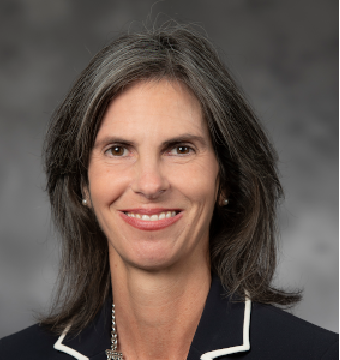
Many have heard of the All of Us Research Program, a historic effort by the National Institutes of Health (NIH) to gather data from one million or more people living in the United States to accelerate research and improve health for us all. All of Us and precision medicine intend to treat each person as an individual.
The “eMERGE” network and "MeTree"
Fundamental for informing All of Us research is the Electronic Medical Records and Genomics Network (eMERGE). Dr. Lori Orlando, Associate Professor of Medicine and Associate Director of Duke Center for Applied Genomics and Precision Medicine, describes the contribution of her research and new funding.
Dr. Orlando and her co-investigators received notice last week from the NIH National Human Genome Research Institute (NHGRI) that they are recipients, along with teams from Vanderbilt and the Broad Institute, of a new award, one to function jointly as the coordinating center for eMERGE. Orlando as PI at Duke will lead collection the family histories on 25,000 participants using MeTree, an innovative web-based clinical decision support tool.
The ultimate goal will be development of an informatics infrastructure to help standardize and share data, and will work with the rest of the network on how to analyze in conjunction with the genomic information that is being collected on everyone.
This is the third large network grant for Orlando.
Dr. Orlando tells us “This is the third large network grant that we’ve gotten recently”. She is PI for the IGNITE 2 network, co-PI on a Moonshot proposal, and Duke PI on this eMERGE coordinating center proposal.
“These, combined with data that we have collected from studies in Singapore, Sri Lanka, the VA, and studies that included 5 US healthcare systems – Cone Health, Duke, Essentia Rural Healthcare Institute, Medical College of Wisconsin, and University of North Texas” adds Orlando, “allow us to create a database of family health histories we can use to start to better understand how to use the family health history to understand disease risk."
Orlando’s team already has genomic data on about 1000 of the individuals from prior studies but this one with eMERGE will be 25,000.
We are excited about the potential for having both family history and genomic data on such a large unselected group of people.
Lori Orlando, MD, MHS, MCCi
_____________
Dr. Orlando recently announced publication of her book: “Managing Health in the Genomic Era: A Guide to Family Health History and Disease Risk”.